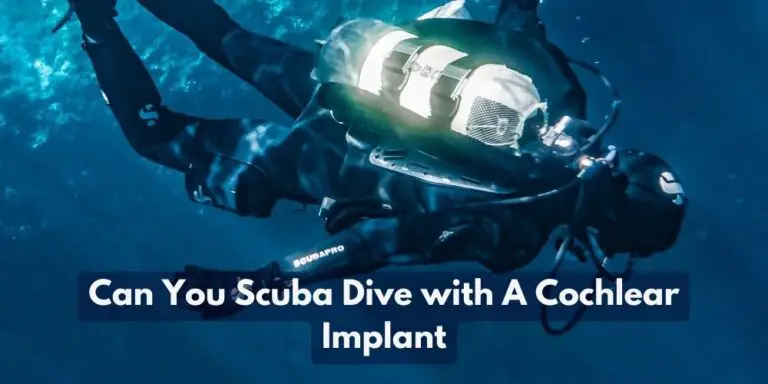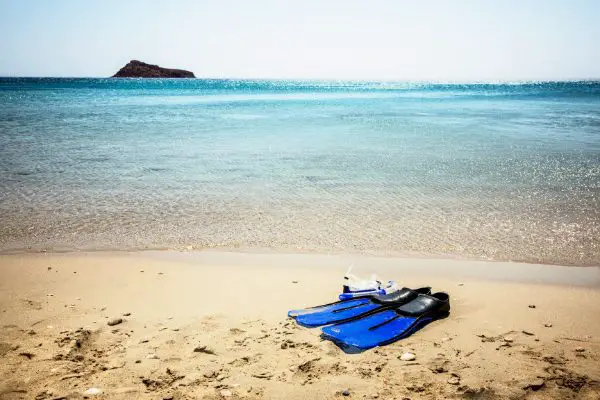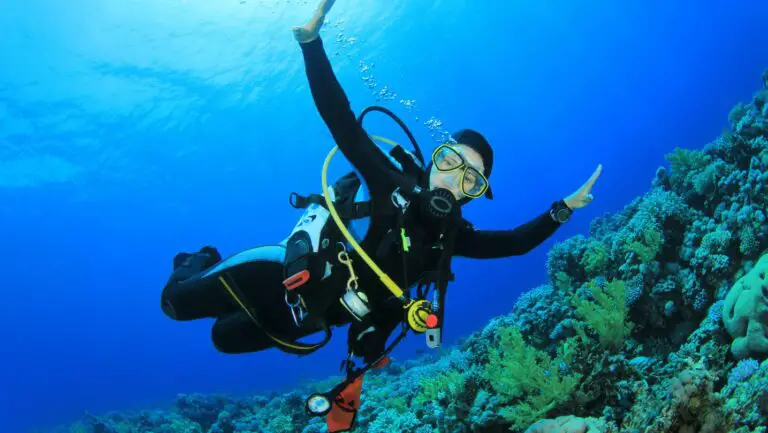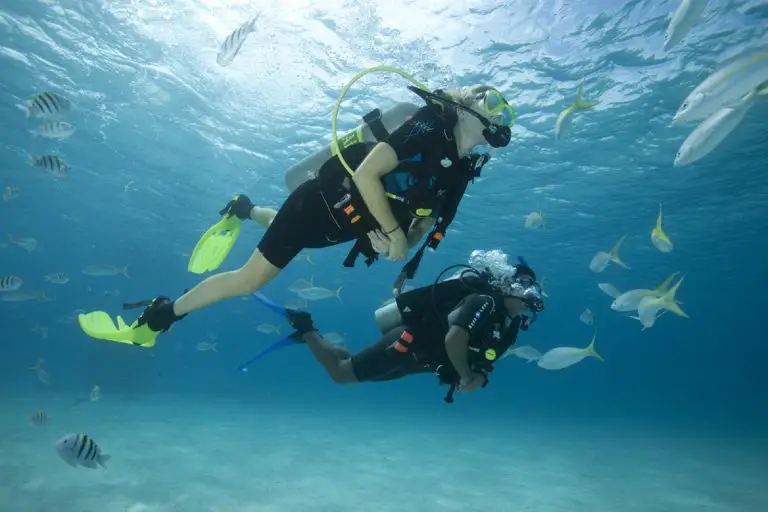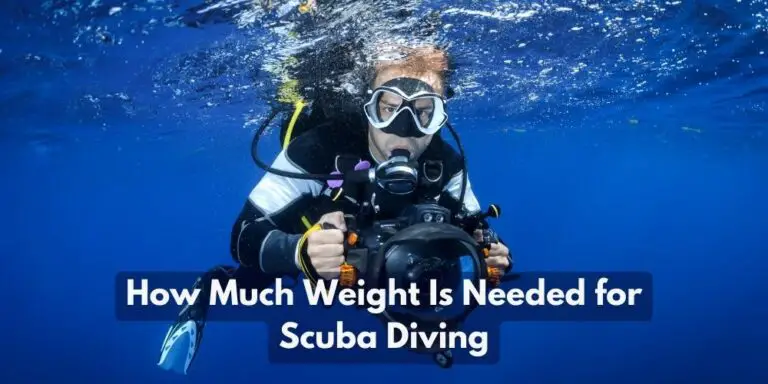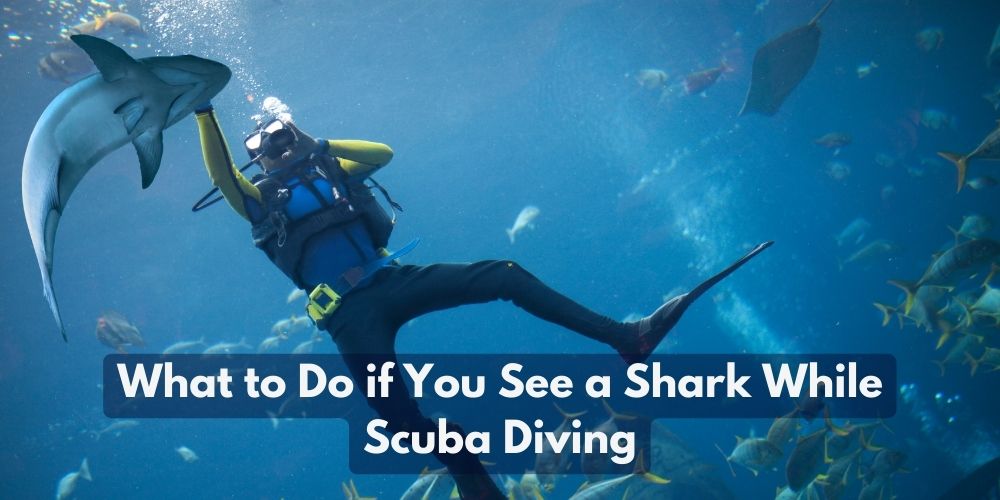
Have you ever imagined the exhilarating feeling of exploring the vibrant depths of the ocean while scuba diving, only to come face to face with a majestic shark? It’s a moment that can simultaneously evoke fear and awe, stirring a surge of adrenaline through your veins. While encounters with sharks during scuba diving are relatively rare, they can happen, and knowing how to respond in such a situation is crucial for the safety of both divers and these magnificent creatures.
Understanding the proper actions to take when encountering a shark underwater is of paramount importance. It not only ensures your own safety but also contributes to the preservation and protection of these essential oceanic predators.
In this blog post, we will explore essential steps to take if you encounter a shark while scuba diving. From understanding shark behavior to promoting conservation, let’s dive in and ensure a harmonious interaction with these majestic marine animals.
Understanding Shark Behavior
Sharks have long been shrouded in myths and misconceptions, perpetuated by media and Hollywood portrayals. However, it’s important to separate fact from fiction. Contrary to popular belief, most sharks are not mindless man-eaters. They play a vital role in maintaining the balance of marine ecosystems. Understanding their behavior is crucial for safe and responsible interactions.
An overview of common shark species encountered during scuba diving
While there are hundreds of shark species, only a few are commonly encountered during scuba diving. These include the majestic and often misunderstood great white shark, the graceful hammerhead shark, and the docile nurse shark, among others. Each species has its own unique characteristics and behaviors, which divers should be aware of to ensure a respectful encounter.
shark body language and signs of aggression
Sharks communicate through body language, offering subtle hints about their intentions. It’s essential for divers to learn to read these signals to gauge the shark’s behavior. Signs of aggression may include rapid movements, pectoral fin lowering, or arched backs. By understanding these cues, divers can make informed decisions and take appropriate action to ensure their safety.
What To Do If You See A Shark While Scuba Diving: Top 5 Tips!
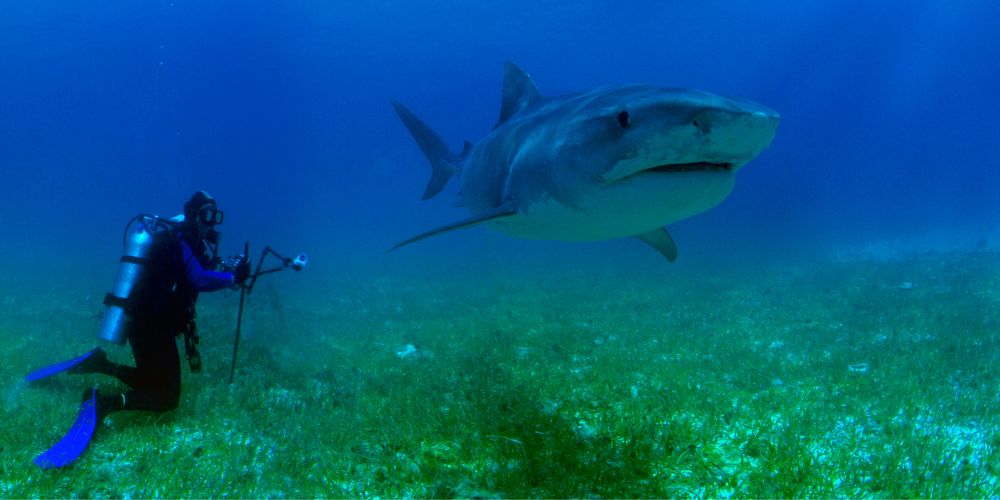
Familiarize yourself with the diving location and local shark population:
Research the area you’ll be diving in to understand which shark species are common and any behaviors or patterns to be aware of. This knowledge helps you anticipate encounters and make informed decisions underwater.
Carry essential safety equipment and tools:
When diving in shark-inhabited waters, have shark repellents like shields or underwater noisemakers to deter them. Carrying a first aid kit specifically designed for shark bites is also essential for any diving expedition.
Stay calm and observe:
If a shark comes close, remember that they are often curious, not interested in eating you. Avoid provoking them and observe their behavior. If they display signs of feeling threatened, such as arched backs or downward-facing fins, calmly swim out of the area.
Never spearfish around sharks:
Spearfishing attracts sharks due to blood in the water. If sharks are drawn to your activities, release your catch and head back to the surface and your boat.
Don’t follow sharks:
Respect sharks and give them space. Avoid pursuing them from behind, as they may view you as a predator and defend themselves. Resist the temptation to get close for photos or videos. Let the shark continue its natural behavior.
Remember to always follow local guidelines and regulations when scuba diving with sharks. By using sound judgment, being aware of your surroundings, and respecting these incredible creatures, you can enjoy the thrilling experience of diving with sharks while ensuring your safety.
FQAs: Safely Scuba Dive With Sharks
How likely are you to encounter a shark while scuba diving?
The odds of encountering a shark while scuba diving are actually quite low. Respectful scuba diving practices significantly reduce the likelihood of shark attacks. On average, there are only around ten deaths caused by sharks per year worldwide, with the majority of incidents involving surfers or swimmers, rather than divers.
Is it safe to scuba dive around sharks?
Yes, it is generally safe to scuba dive around sharks. Sharks are incredible and powerful creatures, but they do not typically view scuba divers or humans as prey. While shark attacks on humans do occur, they are extremely rare. Diving with sharks can be a thrilling and awe-inspiring experience when proper precautions are taken.
Should you leave the water if you see a shark?
If you spot a shark while underwater, it’s important to remain calm and take appropriate measures. Sharks are highly sensitive to contrast, so avoid excessive splashing and keep any erratic-swimming pets out of the water, as they may attract sharks. If you are aware of the presence of sharks in the area or encounter one while diving, it is recommended to leave the water quickly and calmly.
At what depth do most shark attacks occur?
Most shark attacks on surfers and swimmers occur in shallow waters, particularly in depths ranging from 6 to 10 feet. The second and third most common depths for such attacks are 11 to 20 feet and zero to 5 feet, respectively. It’s important to be aware of these patterns, but remember that shark encounters can happen at any depth, so vigilance and precaution are necessary regardless of water depth.
Final Thoughts
Encountering a shark while scuba diving can be a thrilling experience, but it’s crucial to approach it with knowledge and caution. The likelihood of a shark attack while diving is extremely low. By understanding shark behavior, practicing responsible diving techniques, and staying calm, we can ensure safe and harmonious interactions with these magnificent creatures. Promoting shark conservation and responsible diving practices is vital for their protection. So, dive responsibly, respect sharks, and contribute to the preservation of our oceans.

